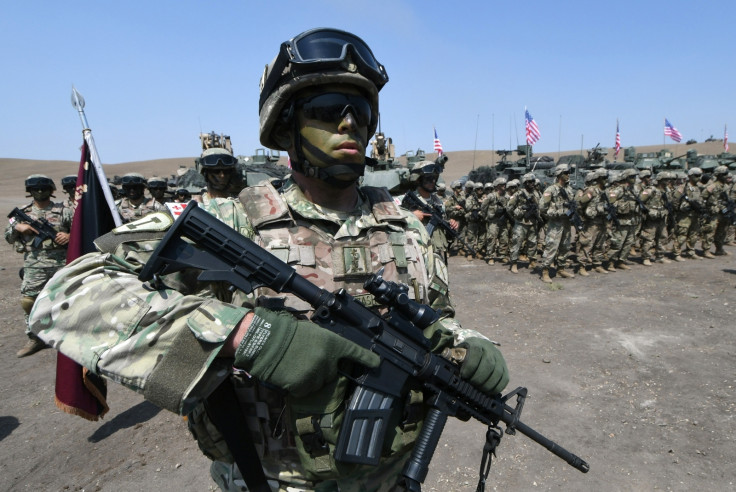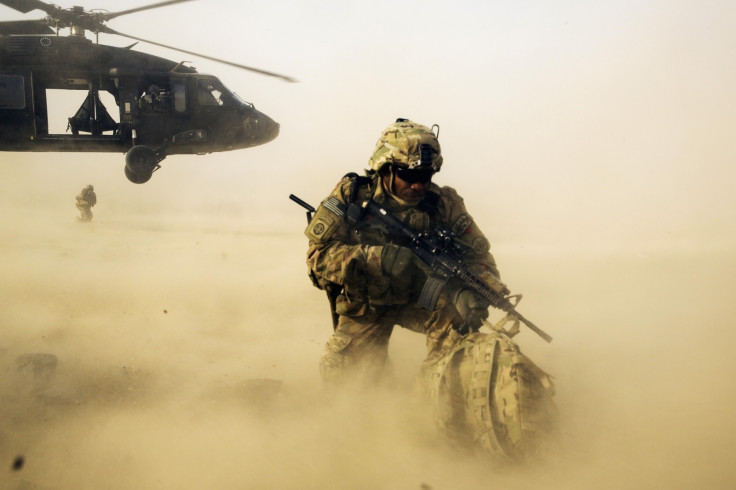US military 'could lose its next war' with Russia or China, warns Rand Corporation
"The nation needs to do better than this," the Rand report warned.

Despite outspending both Russia and China on national security, the US military may lose its next war due to a lack of adequate training and a failure to keep the pace with changes in modern technology, according to newly-released report from Rand Corporation.
In an analysis published Sunday (10 December), the US non-profit organisation issued a damning indictment of the America's military forces, calling on the administration of US president Donald Trump to reassess the nation's defence strategy and security posture.
The report warned: "US forces could, under plausible assumptions, lose the next war they are called upon to fight, despite the United States outspending China on military forces by a ratio of 2.7:1 and Russia by 6:1."
It added: "The nation needs to do better than this."
Rand's researchers said mounting challenges – North Korea's nuclear ambitions, Russia's use of military power against its closest neighbours and the so-called Islamic State (Isis) – are putting a strain on resources.
It found that, when taken collectively, the series of national defence issues "represent the major elements of an international security environment that is more complex and more dangerous than that to which Americans have been accustomed since the end of the Cold War."
In its summation, US and allied forces "lack satisfactory answers" when facing off against North Korea and, despite claiming recent "wins", will be fighting jihadist groups for years to come.
The report claimed the US has a military that is "larger than needed to fight a single major war."
Worse, analysts said it is "failing to keep pace with the modernising forces of great power adversaries, poorly postured to meet key challenges in Europe and East Asia, and insufficiently trained and ready to get the most operational utility from many of its active component units."
It added: "If adversaries perceive US military [...] as inadequate to the task of deterring and defeating coercion or aggression, the viability of this nation's entire national security strategy and, indeed, the rules-based liberal order that it has promoted for more than 70 years, will be called into question."
U.S. forces could lose the next war they are called on to fight, despite America outspending China on military forces by 2.7:1 and Russia by 6:1. https://t.co/tQAgCG4mIM
— RAND Corporation (@RANDCorporation) December 11, 2017
In recent months, tensions have spiked between the US and Russia – especially since the covert influence campaign allegedly launched by Moscow during the 2016 presidential election.
US intelligence has said the rival country's president, Vladimir Putin, likely ordered the operation. According to the Rand analysis, the situation is only set to become more dire.

It read: "Putin has shown himself willing to take advantage of the United States' entanglements in the Middle East and the advantage of geographic proximity.
"His modernisation of Russian forces has made them equal to or in some respects superior to Nato forces, including those of the US. He also appears willing to use hybrid warfare tactics to intimidate and undermine bordering states.
"While in-depth analysis of potential scenarios involving Russian aggression against NATO's eastern flank has only recently begun, it is clear that in many plausible scenarios, NATO forces, as postured today, would be unable to defeat or even meaningfully impede a sizable combined arms invasion aimed at occupying the Baltic capitals."
In future, researchers said the US Department of Defense (DoD) should invest more money into systems that can detect "mobile military forces" and concepts that boost capabilities in space.
These, they noted, would be used to boost positioning, timing, communications and surveillance.
The research paper was titled "US Military Capabilities and Forces for a Dangerous World, Rethinking the US Approach to Force Planning." It was conducted by Rand's International Security and Defense Policy Centre – which is part funded by the US federal government.
Of course, the US government is investing in next-gen warfare for its combat forces, and recently touted the development of its new B-21 stealth bomber - also known as "The Raider." Other projects like the US Navy's electromagnetic railgun, despite years of tests, lurk in development hell.
Change is happening, but the main question now for the US is if it is happening quickly enough.






















